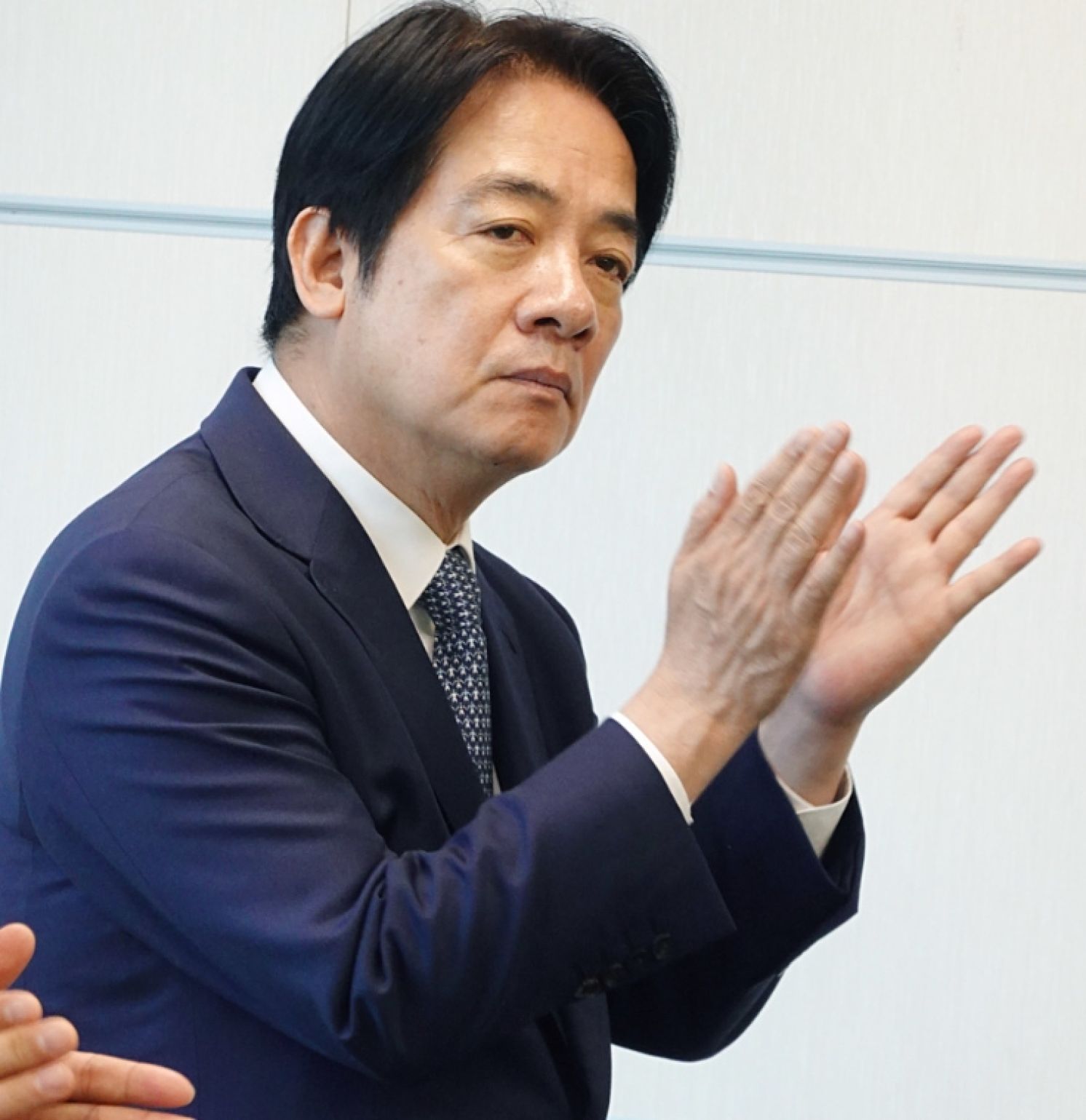
A Hesitant Follower:Why Has Lai's Campaign Been So Challenging?
United Daily News Editorial, December 16, 2023
As the incumbent vice president and chairman of the ruling Democratic Progressive Party (DPP), William Lai seems to be running a challenging campaign despite full support by his party and the current administration. Although he has always been ahead in the polls, the gap has never widened; even with the collapse of the Kuomintang (KMT) and Taiwan People’s Party (TPP) alliance talks and the announcement of Ambassador Bi-khim Hsiao, former representative to the United States, as his running mate, Mr. Lai still cannot let his guard down, because the runner-up, the KMT’s Hou Yu-ih and Jaw Shaw-kong ticket, is catching up. Lai is regarded as the “golden grandson of Taiwan independence” and “the chosen one.” Why can he not win the wholehearted favor of voters? Several reasons can explain his difficult campaign.
One main reason is the unpopularity of President Tsai Ing-wen who has been in power for eight years. The DPP’s massive defeat in last year's local elections was the outcome of public dissatisfaction. It continues to this day, and a "party rotation" has become the wish of most voters. Because 50 percent to 60 percent of the people expect to "unseat the DPP," there was the opportunity for a KMT-TPP coalition. Although the coalition failed to come to fruition, this public dissatisfaction has not dissipated, causing Mr. Lai's support to struggle to pass 40 percent for a long time. Even if Mr. Lai is finally elected president, public anger against DPP’s governance will continue to spread, and his administration will be seriously challenged.
Second, Mr. Lai is personally hesitant about President Tsai's course. In the general election four years ago, he publicly challenged Tsai Ing-wen in the party primary, showing that he was quite dissatisfied with her leadership style. Now, he has to accept the Tsai administration’s policies as a successor and follower, but he seems hesitant to move forward. For example, President Tsai’s energy policy is riddled with holes, going against the world's trend of treating nuclear energy as green energy and gradually abandoning fossil fuels. Another example is that Mr. Lai's stance on cross-strait relations is more radical than President Tsai’s, with the former espousing stronger anti-China and pro-independence tendencies. However, because the United States is not confident about him, he has repeatedly tried to restrain such thoughts, changing his words and clarifying his stance. With his mind divided, Lai must have been depressed about his positioning as a "pragmatic advocate of Taiwan independence” being suppressed.
The third reason is that Mr. Lai is grappling with a dilemma between ideal and reality. As a leader, Mr. Lai has always defended government policies during elections; when faced with questions from college students many times, his speeches were not only boring but also generic, making young people feel that he was being perfunctory rather than listening and communicating seriously. This was originally a burden that Mr. Lai had to bear as he is an incumbent government official, but aside from this point, Mr. Lai has a reserved personality, more than sincere but not interesting and open-minded, and therefore lacks charisma. Because of this, even if the DPP invests all kinds of party and government resources in the election, it still cannot garner more votes for him.
Finally, although Mr. Lai flaunts high moral standards, his behavior is inconsistent. The most obvious example is that members of the party were criticized by public opinion for making mistakes and had to immediately resign from office, or even be disqualified as candidates. For example, the DPP mobilized to amend the “Election and Recall Act” with an added "anti-gang clause" to prohibit ex-offenders from participating in elections because of Lai's insistence. However, this goes beyond the Constitution's guarantee of people's participation in politics. This is exactly the same as when he refused to go to parliament for more than 200 days when he was the mayor of Tainan. In contrast, when his home in Wanli District, New Taipei, was reported to be illegally built and had not paid property taxes, Mr. Lai was able to ignore it for several months. In the eyes of ordinary people, it is certainly difficult to agree with this, thinking that he "reprimands others harshly but treats himself leniently." His diligent image over the past decades may be ruined overnight because of this.
In the last general election, President Tsai was easily re-elected mainly because she successfully created a "sense of national doom" leveraging the international atmosphere surrounding the Hong Kong protests and thereby attracting youth votes. But times have changed. Under the shadow of the Russia-Ukraine and Israel-Hamas wars, the United States has too much to take care of itself and does not want another war to start in the Taiwan Strait. Under such circumstances, Mr. Lai’s "golden grandson of Taiwan Independence" sign has become an eyesore. Therefore, even if Mr. Lai changes his words to "peacefully protect Taiwan" and strives to hide his support for Taiwan independence, he will still inadvertently use the mantra of "resisting China to protect Taiwan" from time to time. This shows how difficult it is to hide his struggle and wandering.
Given the current situation, even if Mr. Lai were elected president, his votes would definitely not look good. Coupled with the disgusting servility of the DPP caucus of the Legislative Yuan, it looks difficult for them to pass the halfway mark next year, and Mr. Lai will be destined to be a weak president by then. Faced with policies that are troubled with flaws, what will he do?